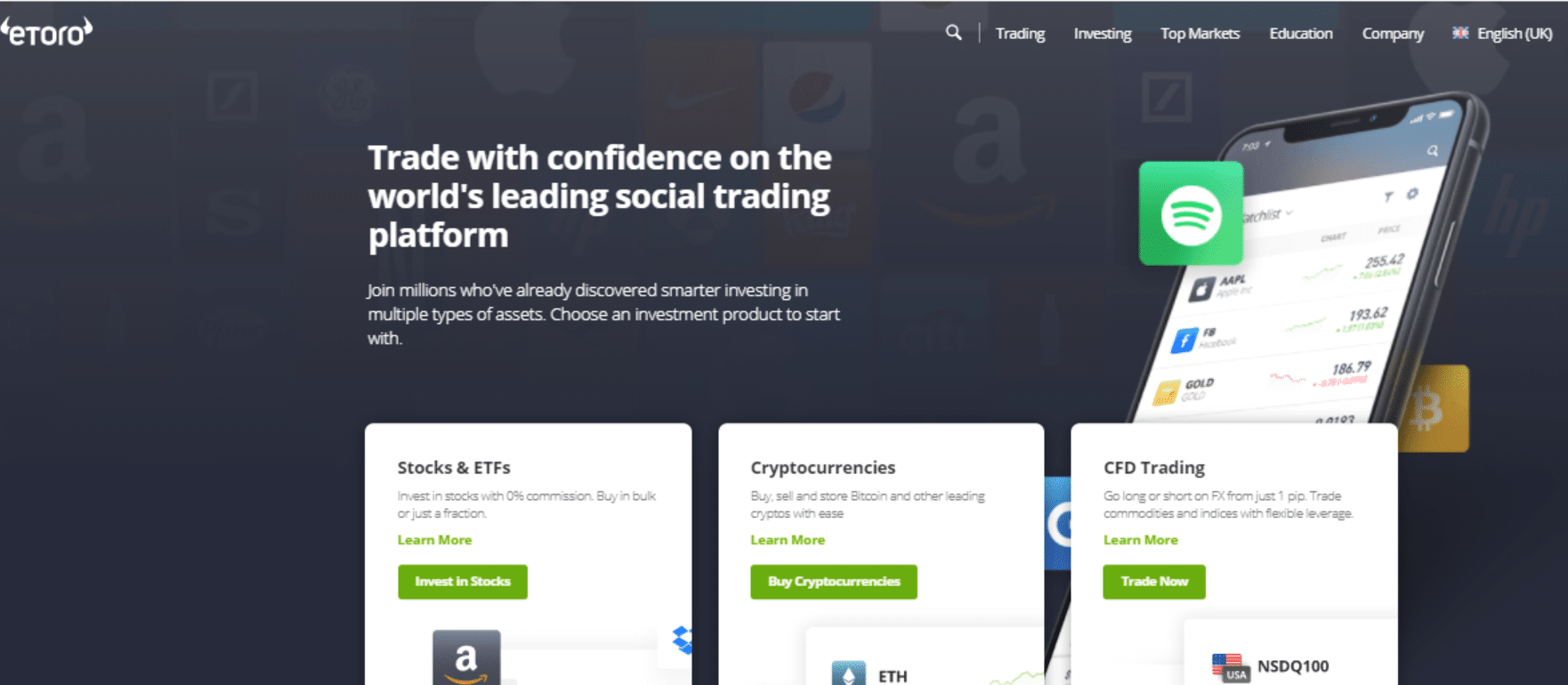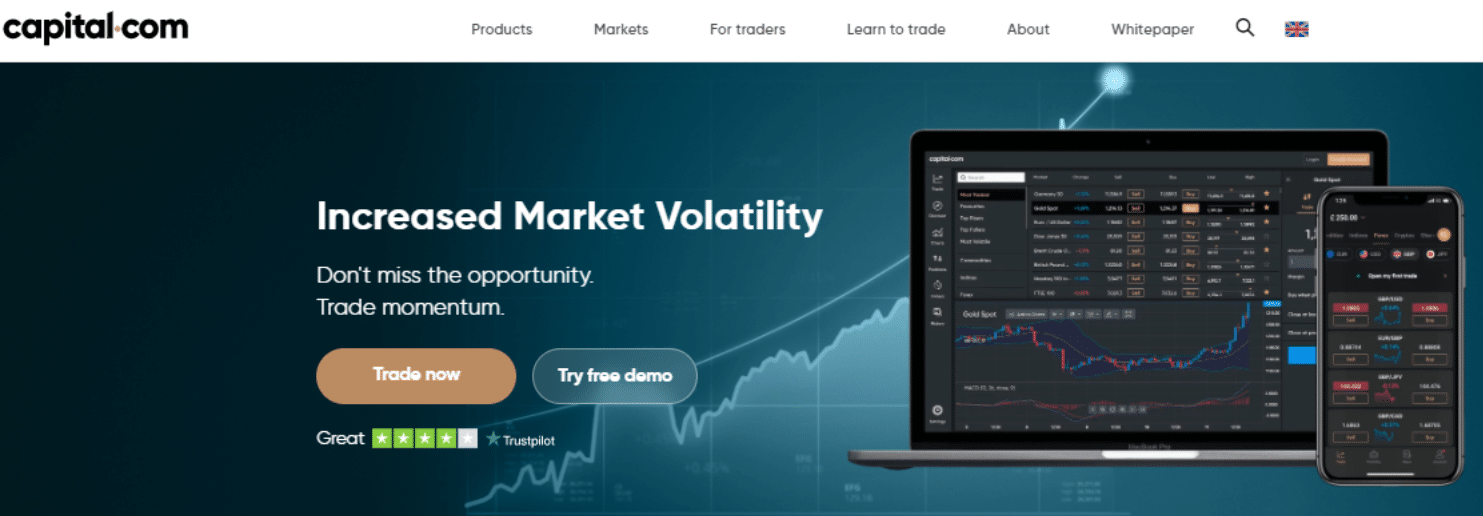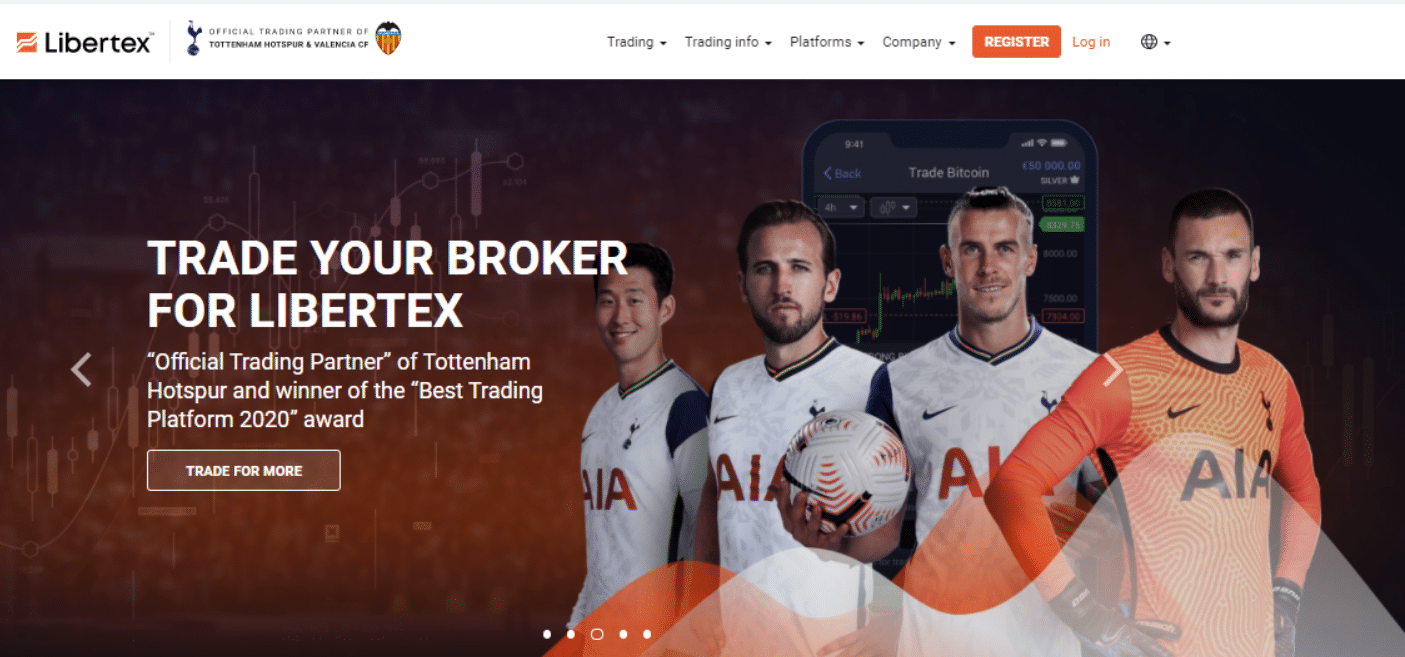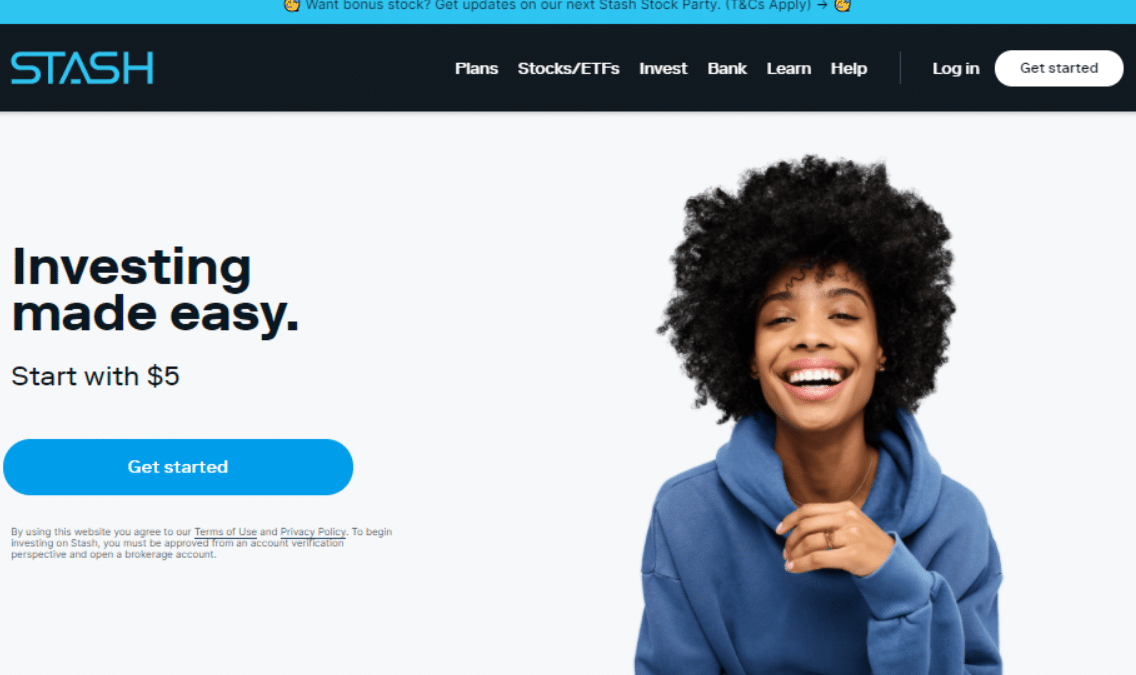5 Best Trading Platforms Available In August 2021
Please note that we are not authorised to provide any investment advice. The content on this page is for information purposes only.
When it comes to picking a trading platform, you can’t compromise. The internet is littered with options, making it difficult to decide. This guide explores the best trading platforms available and how they stack up with one another.
1. eToro – Best Online Broker

Starting our list is trusted online broker eToro. eToro is a user-friendly trading platform great for casual investors and trading newbies.
The trading platform popular for its excellent social copy trading and numerous investment options is our top seed in the best trading platforms for June. eToro is regulated by several reputable bodies like the Financial Conduct Authority (FCA) in the UK, CySEC in Cyprus, and ASIC in Australia, making it a safe place (low risk) for you to trade financial instruments.
eToro offers exposure to over 2,500 financial instruments, including stocks, bonds, exchange-traded funds (ETFs), FX currency pairs, contracts for differences (CFDs), and is quickly expanding its crypto offering repository.
Not going the traditional route like other brokerage firms, eToro offers a demo account where users can learn the ropes before depositing funds. Adding to this, eToro runs a CopyTrade functionality that lets beginners mirror the trading strategies of more experienced traders on the eToro platform. This can be a safe way to minimize losses and maximize profits.
eToro gets really attractive with the fees. eToro also offers zero-commission trades allowing investors to place trades and pay only for the share price of the instrument they are investing in.
However, eToro has its quirks. It requires a minimum first-time deposit. The platform requires $200 from customers. Transactions on the platform are also denominated only in US Dollars, and there’s a fixed $5 withdrawal fee. This could be a major drawback for users residing out of the US.
Meanwhile, eToro allows users to fund their accounts with payment methods like credit/debit cards, bank wire transfers, e-wallets like PayPal, Neteller, Skrill, etc.
Pros
Cons
2. Capital.com

Founded in 2016, Capital.com is a global contract for difference (CFD) and forex broker. It is licensed by reputable bodies like the FCA and CySEC.
Capital.com has over 1 million active users and aims to offer retail and commercial investors access to several financial markets. Investors can trade CFDs and other derivatives on FX currency pairs, commodities, stocks, indices, and cryptocurrencies.
As extensive as the platform is, it’s still pretty affordable to use. Capital.com is a bit similar to eToro. It offers 0% commission trading for all of its financial instruments. This means you can trade CFDs, stocks, and cryptos without paying a premium to get them. This is in stark contrast to other stock brokers online. The platform uses a spread model instead. Which means it adds an extra amount to the price. Captital.com offers some of the tightest spreads in the market, making it one of the best low spread brokers for investors trading small amounts.
Pros
Cons
3. Libertex

Launched in 1997, Libertex is an online CFD trading platform loaded with advanced trading tools and leverage trading features. The platform is reported to have a presence in over 110 countries globally, with over 2.2 million users. Unlike its competitors, Libertex offers exposure to a few niche market classes with a presence in only 213 international markets.
This covers stock CFDs, ETFs, FX currency pairs, cryptocurrencies, commodities, indices, and bonds. Libertex’s selling point is its zero spreads offering, making it a unique trading platform. However, its commissions are a bit vague, and you get charged overnight finance, also known as a swap fee. This is not peculiar only to Libertex. It’s a common theme among brokers that offer leveraged products.
As per the trading experience, Libertex uses MetaTrader 4 and its web trader. With both platforms, you will be able to monitor the price movements of the underlying instrument, engage in technical analysis, and work with various trading tools. Libertex uses the commission, not the spread model. However, the platform is not overly transparent on what commission it charges.
Libertex also runs a mobile version of its trading platform, allowing retail users to place instant trades right from their smartphones.
Regarding the minimum deposit, Libertex has one of the lowest in the industry at just $13, making it super-easy for anyone to start investing. Libertex allows users to fund their accounts with their debit/credit cards, Skrill, Sofort, Giropay, Trustly, Bank transfer, Neosurf, and Tele Ingresso.
Pros
Cons
4. Stash Invest

Stash invest is on a mission to make the process of selecting investments – especially stocks and ETFs quick and easy for beginners. Users are billed $1 for a brokerage account in addition to Stash’s online bank account and debit card alongside a rewards program.
Stash offers users a $0 balance for their portfolio, and because Stash offers fractional investing, users can buy a portion of a company’s stock.
Stash offers a pyramid service system allowing users to own a retirement account alongside a brokerage and bank account for just $3. Users choosing the $9 plan get two custodial accounts for minors with additional bonuses through its rewards program and a monthly investment research report.
Stash does not bill users for annual or inactivity fees. However, users will have to part with a whopping $75 for making transfers out of their account. Stash offers exposure to over 3,000 ETFs and individual stocks.
Pros
Cons
5. Avatrade

Last on our list of the best trading platform is AvaTrade, a privately held online forex and CFD broker founded in 2006 with headquarters in Dublin, Ireland. AvaTrade is a popular futures trading platform. It’s a top CFD instrument that offers several asset classes. This best trading platform is quite popular with traders who want to get in on the futures action without spending so much on fees. AvaTrade uses the spread model. It does not charge any commissions for trading.
Like eToro, AvaTrade offers copy and social trading with AvaSocial, ZuluTrade, and DupliTrade. It also has a well-organized educational section where traders can build their trading skills from newbie to pro.
AvaTrade offers negative balance protection with the AvaProtect, enabling users to take out insurance on a trade. AvaTrade is regulated in multiple jurisdictions but is not licensed to operate in the UK.
Pros
Cons
Still not sure which platform to choose? Here’s how they compare to one another:
| Trading Platform(s) | Trading Fees | Deposit and Withdrawal Fees | Inactivity Fee | Margin/ Overnight Fee | Spreads/ Management Fee |
| eToro | Commission Free | Deposit – Free of Charge
Withdrawals attract a $5 fee |
$10 per month after a year | For a position of $1,000 around $0.22 for long positions and $012 for short positions | 1 pip for the EUR/USD pair |
| Capital.com | Commission Free | Deposits – Free
Withdrawals – Free |
None | Yes | 0.00008 For EUR/USD pair |
| Libertex | Charges commission | Deposits – Free of Charge
Withdrawals – e-Wallet is free. Debit/credit withdrawals attract €1 fee |
$5 per month after a year | Yes | Zero spreads on all instruments |
| Stash Invest | Subscription-based | Deposits – Free of charge
Withdrawals – $75 for outgoing transfer |
Nil | Nil | 0.25% management fee |
| AvaTrade | EUR/GBP pair attracts $12.1 | Deposits – Free of Charge
Withdrawals – Free of Charge |
$50 per quarter | 0.0058% for long and short positions | EUR/USD attracts $0.9 |
Looking to start trading now? Invest at eToro!
67% of all retail investor accounts lose money when trading CFDs with this provider




